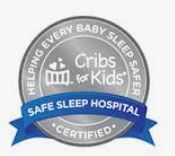A diagnosis of lymphoma can be a life-changing moment. But at Central Maine Healthcare, we combine compassionate care with a full range of treatments.
Treating Lymphoma
The first goal of lymphoma treatment is to get blood counts back to normal. If this occurs and the bone marrow looks healthy under the microscope, the cancer is said to be in remission. We’ll work closely with you to create the best possible treatment plan, including a full range of cancer support services to meet your needs.
Chemo/biotherapy
Chemo/biotherapy is used to kill cancer cells with medicines delivered either directly into your vein or by way of a pill taken by mouth. It is usually given if the tumor has returned or spread.
Radiation Therapy
We use the most advanced technology available to target cancer with extreme precision. Treatments include 3D conformal therapy, intensity-modulated radiation therapy (IMRT) and image-guided radiation therapy (IGRT). All of these focus high-dose radiation directly on the tumor, while minimizing damage to surrounding healthy tissue. This treatment is overseen by a radiation oncologist, a doctor who specializes in using radiation to treat cancer.
Central Maine Medical Center offers this service at The Cynthia A. Rydholm Cancer Treatment Center, which has state-of-the-art radiation therapy services.
Bone Marrow Transplant
In some cases, a bone marrow transplant (also called a stem cell transplant) is an option. The procedure is used to replace damaged or destroyed bone marrow with healthy bone marrow stem cells. Stem cells are immature cells in the bone marrow that give rise to all of your blood cells. A bone marrow transplant replaces bone marrow that either is not working properly or has been destroyed by chemotherapy or radiation.
The oncologists at Central Maine HealthCare may also use innovative options like immunotherapy. With this treatment, medication triggers your immune system to attack and kill cancer cells.
Support for Every Step
We’re committed to caring for the whole you. That’s why we provide the resources you and your loved ones need to manage the journey from diagnosis to treatment to remission. You’ll find a full range of free or low-cost cancer support services—from education to rehabilitation, nutritional to spiritual counseling, support groups and more empowering programs.





